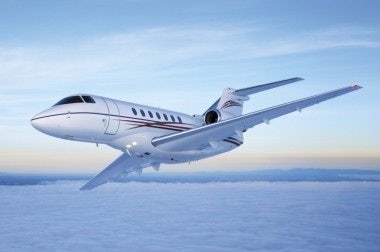Frank Lee (CPAC, Dassault Falcon) Discusses Future Of Private, Business Jet Industry#

Now that astronomically priced cars and villas are the norm for China's sliver of ultra HNWIs, they're increasingly looking to the skies for their next major purchase -- a private jet. However, even among China's wealthiest individuals private jets are a rare luxury. According to recent estimates, there are only anywhere from 100-200 private jets in the Chinese mainland, most of which are actually flying illegally, as only about 30 are actually registered. Compare that to the more than 11,000 in the United States. With figures like these, it's no surprise private jet makers are struggling to contain their enthusiasm for the mainland China market.
But this doesn't mean it's going to be easy. As the Global Times recently pointed out, in mainland China there are a number of regulations in China for flying a private jet: an airworthiness license for the plane issued by the Civil Aviation Administration of China, a valid pilot license and a flight plan approved by the military and civil aviation administration. While this sounds pretty run-of-the-mill, the reality is much more complicated. Earlier this month, a China Economic Review article noted that "low" airspace (less than 30,000 feet) is tightly controlled by the military, which isn't terribly supportive of the idea of loosening its grip any time soon. As such, many wealthy individuals in China are taking an "I bought it and I can fly it" approach with their private aircraft, shirking the regulations and jetting around the country illegally.
Regulatory challenges notwithstanding, private jet makers -- much like the luxury brands and car makers who preceded them -- are barreling into China along with their sea-bound counterparts in the yacht making industry. For these jet makers, the increasingly global business done by some of China's elite presents the greatest opportunity in years to corner an industry that remains something of a blank slate. Heartened by the growing spending power (and willingness to spend) among this business elite, as well as the rumors that a new aviation law will be drawn up in China this October, jet makers are taking part in events like the recent Hainan Rendez-Vous and the upcoming 2010 China Shanghai Jet Expo in record numbers.
This week, Luxury Insider features an interview with Frank Lee, the head of CPAC and Dassault Falcon's China representative, to discuss the future of the business jet market in China. Although Lee -- as a rep for a major jet maker -- is obviously ebullient about the industry, he makes some interesting points that are worth considering. From the interview:
How is the current market in China for business jets?
The latest developments have been very positive. The Chinese government has eased regulations on airspace access, enabling jet owners to travel at their own convenience. Chinese banks have also developed new financing activities in the private jet field. As Chinese businesses continue to export their products, the need to travel to meet with customers is increasingly important, especially given China's increasing business interests in Africa, America and Europe.
Do you see much room for growth?
Absolutely! To give you some figures, in the entire Asia Pacific region, there are about 600 business jets with about half of them in East Asia and fewer than 100 in Greater China. In comparison, there are 11,000 business jets in the United States!
What is today's perception of business jets in China?
We are working on ensuring that Chinese businessmen and entrepreneurs see business jets as great tools to improve productivity and efficiency. In a recent study done in the US of Fortune 1000 corporations, it was found that companies that own business jets are more profitable than those that don't. This proves how much more productive a company can be by owning a jet when there is a need for efficient travel. For a listed company worth US$10 billion, a private jet allows the CEO to be more time-efficient.
Are there enough Fixed Base Operators (FBO) to cope with the expansion and growth of the number of business jets? How easy is it to fly within China?
The lack of FBOs in China has been a major issue for a long time. However, when you look back ten years ago to when only a handful of airports were open to business jets, we've come a long way. Now, at least 150 of China's 400 airports are open to business jets and many are near the major cities. It is a great improvement with more airports and FBOs catering to business jets. On the administrative side, it used to take about a week to obtain permission for foreign-registered aircraft to fly to China. Now, owners need only provide detailed information the first time the aircraft flies into the country; for subsequent trips, permits are usually issued within a day.
Whether the growing interest in private jets leads to greater liberalization in the Chinese airspace or simply tighter regulation is anyone's guess at this point. It's clearly a high-stakes investment for private jet makers, much more so than it is for yacht or auto makers. As this story progresses, it will be interesting and important to keep an eye on how jet makers market their product, not only to consumers but also to the Chinese government, as the industry tries to crack the China market and create a new client base.